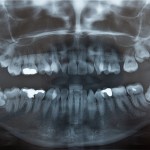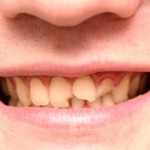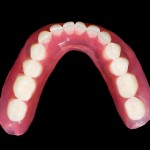
In her debut blog, Amy Morgan summarises a qualitative study evaluating the government-funded Every Mind Matters campaign in the UK.
[read the full story...]
In her debut blog, Amy Morgan summarises a qualitative study evaluating the government-funded Every Mind Matters campaign in the UK.
[read the full story...]
This review of antibiotic prophylactic treatments in relation to the risk of developing dry socket (DS) and site-specific infection (SSI) after lower third molar extraction included 16 RCTs. Antibiotic did reduce the risk of DS and SSI in health patients but the number needed to treat (NNT) was high so the use should be considered only after a careful assessment of an individual patient’s risk.
[read the full story...]
Georgia Kemp reflects on a recent qualitative paper that looks at adolescents’ personal accounts of fatigue as a symptom in depression.
[read the full story...]
In her debut blog, Ella Tuominen considers the Tavistock Adult Depression Study (TADS), which evaluated the cost-effectiveness of long-term psychoanalytic psychotherapy for treatment resistant depression compared to treatment as usual.
[read the full story...]
This update of a Cochrane review of the relative benefits and harms of different surgical treatment modalities for oral cavity and oropharyngeal cancers includes 15 RCTs. Moderate-certainty evidence from 5 RCTs showed trials that elective neck dissection of clinically negative neck nodes at the time of removal of the primary oral cavity tumour is superior to therapeutic neck dissection, with increased survival and disease-free survival, and reduced locoregional recurrence.
[read the full story...]
This review to assess the prevalence in bruxism in patients with Down Syndrome included 8 small studies. The studies were hetrogeneous with a pooled prevalence of 33% (95% CI: 22 to 45%).
[read the full story...]
This review assessing the agreement of dental caries experience between monozygotic (MZ) and dizygotic twins (DZ) included 19 studies. While the findings indcate a possible a genetic influence the certainty of evidence is very low so the findings should be interpreted very cautiously.
[read the full story...]
This review of the prevalence of orofacial injuries in patients with cerebral palsy (CP) included 12 studies. Ten studies were included in a meta-analysis which estimates the assess the prevalence of orofacial injuries in patients with CP at 34% (95%CI; 18 – 25%).
[read the full story...]
In her debut blog, Nuria Gardia explores a qualitative study on loneliness experiences among people with mental health difficulties in the UK, which finds that mental health problems can lead to people feeling lonely, and feeling lonely can lead to poorer mental health.
[read the full story...]
This review comparing the use of narrow-diameter and regular diameter dental implants for supporting mandibular overdentures included 8 studies reported in 12 publications. While the findings suggest no differences between narrow and regular implants supporting mandibular overdentures the findings should be viewed cautiously as the quality of evidence is limited in quality and quantity and also short-term in nature.
[read the full story...]